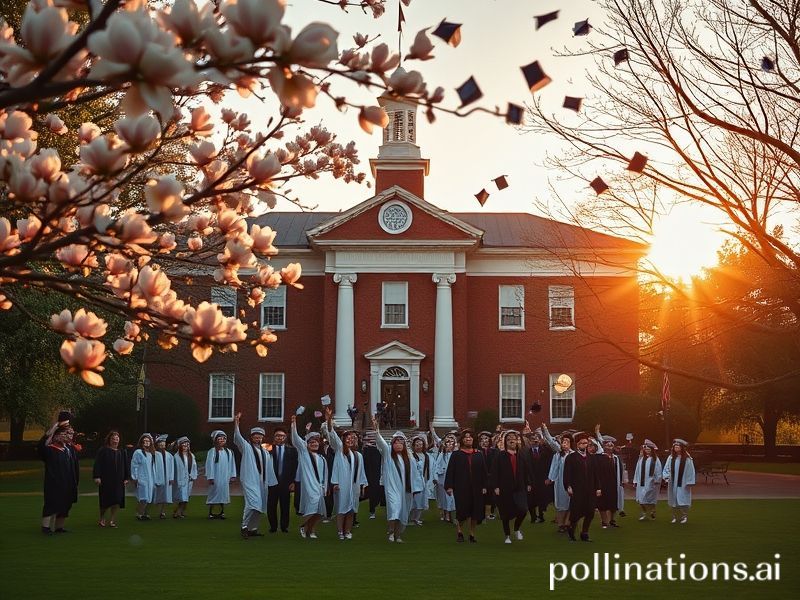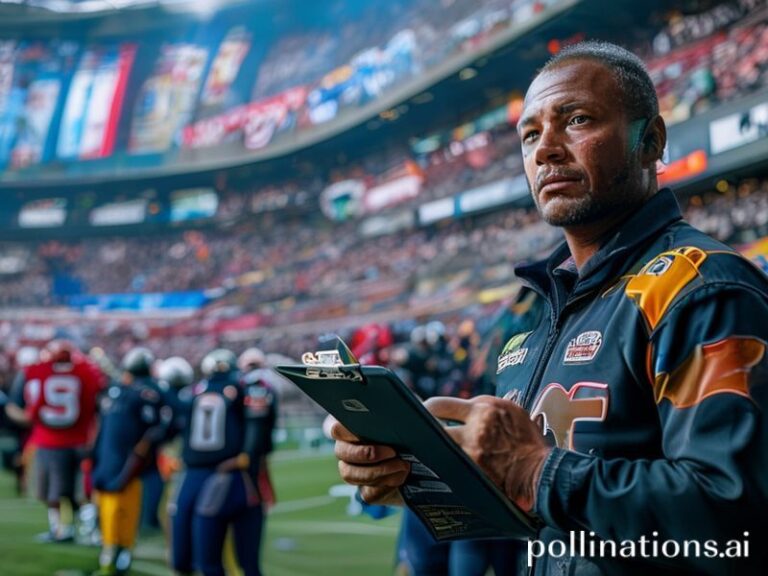Langston University: The Tiny Oklahoma HBCU Quietly Shaping the Global South’s Future
Langston University: How a 125-Year-Old HBCU in Oklahoma Quietly Trains the Global South’s Next Overlords
Langston, Oklahoma – Population 1,800, or roughly one Beijing subway car on a slow Tuesday. Yet here, amid cattle and dust devils, sits Langston University—an Historically Black College founded in 1897 when the British Empire still thought sunburn was a personality. From the outside it looks like another sleepy Midwestern campus, except the Wi-Fi occasionally crackles with WhatsApp messages from Lagos, Accra, and Kingston asking for “Dr. Afolabi’s lecture notes on precision agriculture.” That’s your first clue that Langston is less a regional school and more an accidental node in the developing world’s quiet scramble for soft power.
Globally, the narrative goes like this: Elite Western universities Hoover up tuition from the Global South, mint oligarch-adjacent technocrats, and then act shocked when said technocrats offshore democracy. Langston flips that script. Roughly 14 percent of its student body now hails from outside the United States—mostly West Africa and the Caribbean—drawn by cut-rate tuition, a 15:1 faculty ratio, and the subtle pleasure of studying agronomy in a place that actually grows things. The irony, of course, is that while Ivy League presidents sweat about “diversity optics,” Langston just keeps exporting Black agronomists, nurses, and cybersecurity majors to countries that remember colonialism like it was last season’s Netflix drop.
Consider the numbers. Nigeria alone has 220 million mouths to feed and a president who believes crypto is a vegetable. Enter Langston alumnus Dr. Chinwe Okoro, class of ’09, now running a drone-mapping startup that monitors cassava blight across three states. Her satellites beam data back to servers in—where else—Langston’s goat-adjacent research plots. The university’s Goat Research Extension Program (yes, that’s its real, unimprovable name) has become the unlikely Davos of ruminant economics, with delegations from Tanzania comparing notes with Oklahoma ranchers who think “foreign aid” is a new IPA.
Meanwhile, the Caribbean’s climate exodus has turned Langston into a minor Ellis Island. Barbudan students study water-resource management while their home islands literally sink—Mother Nature’s way of adding urgency to the syllabus. One Kingston-born senior, Kadian Clarke, jokes that her final project is “designing seawalls that will eventually become snorkeling attractions.” Gallows humor is extra credit here.
The geopolitical kicker? China’s Belt and Road Initiative has spent billions trying to buy goodwill across Africa with shiny stadiums and debt traps. Langston’s total annual budget is about $60 million—roughly the cost of one Beijing overpass—yet it keeps producing graduates who return home to negotiate those very infrastructure deals. Nothing undercuts soft-power theater quite like a negotiator who remembers exactly how much alfalfa costs per acre in Payne County.
Not that Langston is above its own contradictions. The campus still relies on donor largesse from oil-rich Oklahomans whose climate denial rivals the flat-earth subreddit. Every new lab building is, in effect, subsidized by the very carbon emissions drowning the Caribbean cousins of its students. Administrators call this “pragmatic synergy”; cynics might say it’s academic laundering with a side of brisket.
Still, the world keeps noticing. Last year, the United Nations’ Food and Agriculture Organization quietly relocated a fellowship program from Rome to Langston’s campus, citing “operational efficiency” and, one suspects, cheaper barbecue. Delegates from 42 countries now spend summers learning soil science in a town whose main cultural export used to be high-school football. They leave speaking a hybrid accent—part Yoruba, part Southern drawl—that will eventually dominate Zoom calls from Dakar to Dallas.
So while pundits obsess over Harvard’s endowment and Oxford’s legacy admissions, Langston University keeps doing the unglamorous work of training the people who will feed, heal, and secure a planet that richer institutions prefer to theorize about. If that isn’t a cosmic joke, it should be. After all, the arc of history may bend toward justice, but apparently it takes a detour through central Oklahoma—and stops for goat curry on the way.







